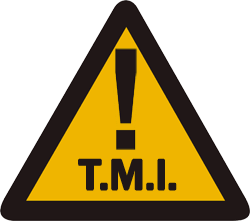 PMI’s Code of Ethics clearly illustrates the value placed on transparency in the project management profession – both the Honest and Fairness sections of the Code contain standards which echo the importance of this attribute. This includes transparency in decision-making as well as being truthful, accurate and timely in our communications.
PMI’s Code of Ethics clearly illustrates the value placed on transparency in the project management profession – both the Honest and Fairness sections of the Code contain standards which echo the importance of this attribute. This includes transparency in decision-making as well as being truthful, accurate and timely in our communications.
But just how transparent are we really on a day-to-day basis when we are managing our projects?
Do we share what we are doing to respond or resolve each and every risk and issue (no matter the criticality) with key stakeholders?
Do we automatically set our schedule or cost health status to red the moment we exceed approved baselines, no matter how slight that variance?
Do we bring each and every requirements change to our sponsor as change requests?
Do we document each and every step taken along the path to making a critical decision?
Of course not.
Too much transparency can undermine credibility in a project manager as quickly as incompetence does. It also encourages sponsors and other stakeholders to engage in micromanagement.
I’m not advocating deceit. If your project is genuinely in harm’s way, it is your responsibility to make sure this information gets shared with the right stakeholders in an objective, timely fashion. If you know that a certain path of action will benefit your company but not your customer, you should be open about that.
But never forget that a large part of project management is stakeholder expectation management. Our stakeholders are expecting us to be trustworthy and competent which means that while we need to be transparent we also are expected to use our judgment.
Judgment is a key difference between someone who is managing a project and someone who is merely reporting on its status. Otherwise, most project management information systems would have the triggers for health status indicators or alarm notifications hardcoded whereas most of the time, these features are fitted with manual overrides. The designers of these systems understood that no matter how advanced are the rules which you’ve codified for evaluating project health, you can’t remove the human judgment element from the equation.
Yelling “Fire!” in a packed theatre might be a lesser offence than not having working smoke detectors in a similar venue, but they are both criminal acts.





I haven’t seen this discussed before but it’s a very good point. Sometimes I feel it’s not the project manager that is not willing to be transparent. It is rather senior management or whoever is sponsoring the project that prefer to keep information private. Perhaps distributing all this information may somehow undermine their position in the firm.
LikeLike